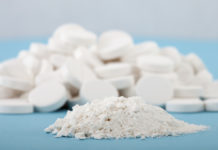Drug addiction is a serious medical disorder that can be extremely difficult to overcome. The use of drugs in moderation can alleviate most of the health problems associated with drug abuse, however the problem often gets out of control after the use of drugs stops. The drug treatment options available are based on several factors such as the nature of the substance and the personality of the user. Generally, drug addiction is not an addiction to substances taken casually, but rather a disorder that occurs when the substance is taken irresponsibly and without regard for the consequences.
Drug rehabilitation is the treatment of substance abuse in a medical or psychological context with the aim of helping recovering addicts to lead productive and satisfying lives. This type of treatment can be used for various types of addiction including alcohol, cocaine, opiate, stimulant, and illegal substances. In some cases, the treatment also involves the recovery of the person from drugs. It is important to note that many drugs have addictive qualities, and those who use them often become addicted. Hence, the need to treat addiction holistically is very important.
Many drug rehab centers offer treatment programs tailored to suit different needs. For example, inpatient treatment allows the patient to be under the care of a qualified physician while they attend treatment. In outpatient treatment, the patient is encouraged to participate in outpatient therapies and activities designed to encourage the individual to develop new skills and attitudes. For drug-dependent patients, the aim is to reduce the cravings for the drug and eventually lead a drug-free life. Some treatment facilities offer a detoxification program where patients undergoing drug rehabilitation are given instructions on how to safely withdraw from the substance. Some facilities even provide housing services to help patients live in residential settings.











